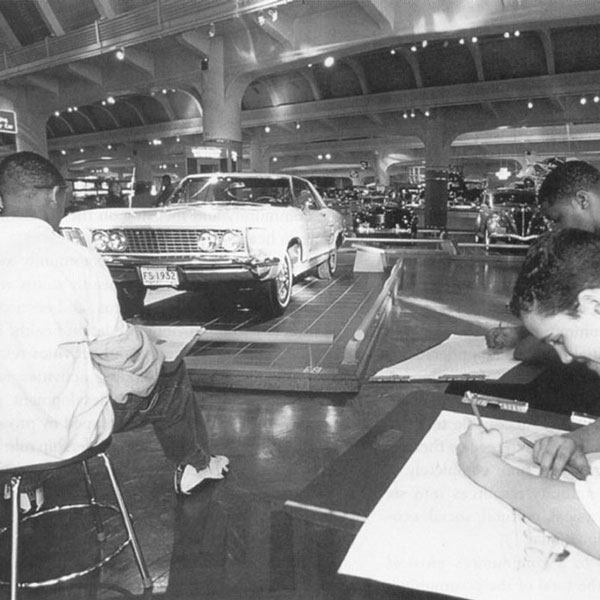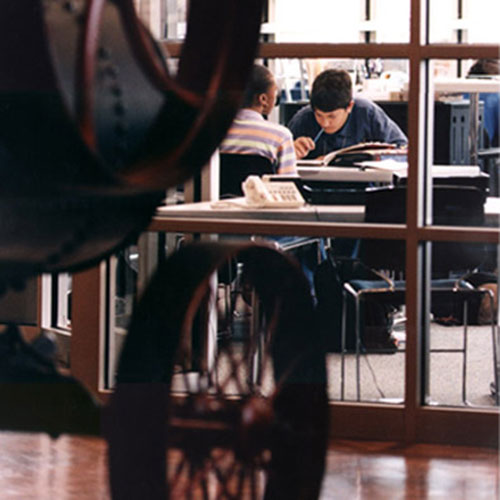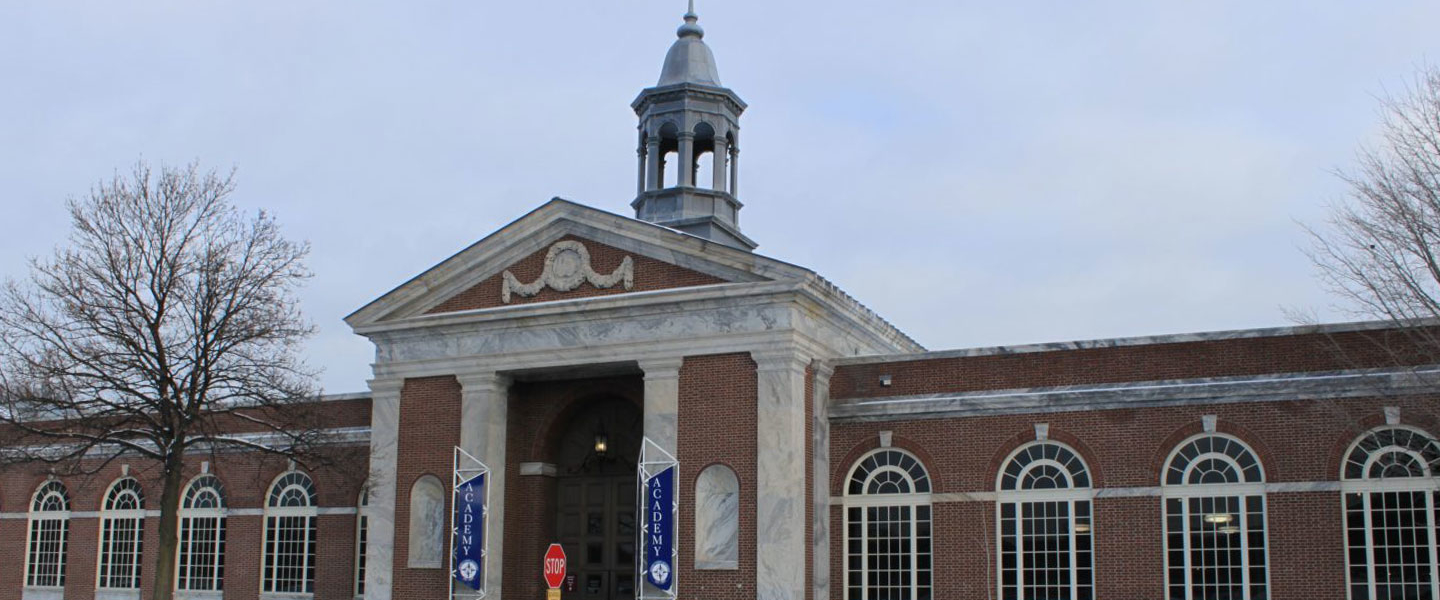The Henry Ford Academy, winner of the CEFPI James D. MacConnell Award, is a community school located completely within the Henry Ford Museum campus in Dearborn, Michigan. Rather than build a new facility on the site, Concordia recommended that the school be integrated into the existing museum buildings and site. Renovation and minor new construction work required to accommodate all students was made for less than 25% of the cost for a comparable new school. A rigorous engagement process included the museum staff, along with students and teachers, in the design process for the academy, meeting the MacConnell Award’s criteria of comprehensive planning that results in “educational facilities that serve the community” and enhance educational programming.

Designed to maximize visual connections and promote collaboration between students and the museum, the new classrooms feature interior glass storefront walls instead of conventional solid walls. As three dimensional learning tools, two historic train boxcars were renovated into learning spaces that can be separated with a movable partition. Ongoing educational programming immerses students directly in the museum’s collection and research to teach collaborative skills – the students go to school in the museum. This unique, integrated approach has resulted in dramatically increased school attendance, and some of the highest test scores and graduation rates in the state. The Henry Ford Academy is the nation’s first charter school developed jointly by a global corporation (the Ford Motor Company), a public education institution (the Wayne County Regional Educational Service Agency) and a world-renowned cultural institution (the Henry Ford Museum).




